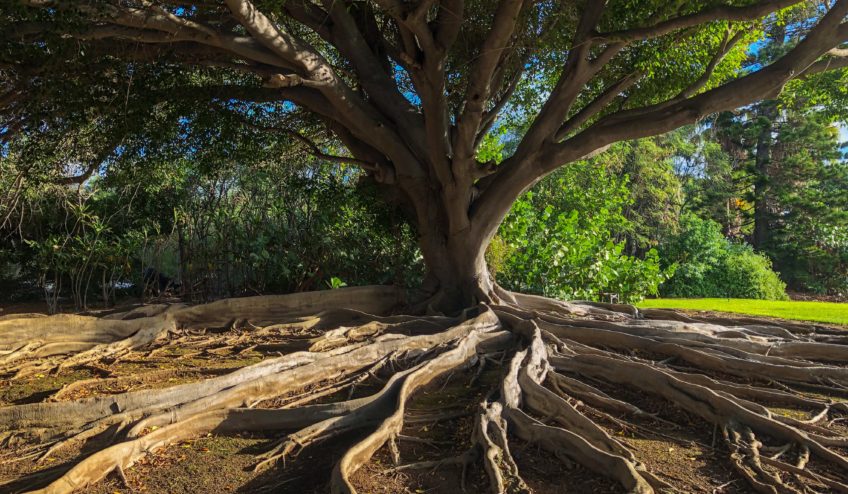The following blog is based on reflections I’ve had since Brian and Marcus gave us great teachings during our international service on Easter Sunday regarding the Walk to Emmaus and the Resurrection of Lazarus. While drawing on aspects of their teaching, this blog is more focused on our prayer-life and raises questions to reflect upon.
Regarding prayer, Evagrius of Pontus circa 384 says that:
“When your intellect, in its great longing for God gradually withdraws…
and turns away from all thoughts that have their source in your
sense-perception, memory or soul-body temperament, and when it becomes
full of reverence and joy, then you may conclude that you are close to the
frontiers of prayer”.[1]
I’m so struck by what Evagrius underscores here in terms of withdrawing from sense-perception, memory, soul-body and only then are we at the “frontiers” of prayer!
Reflecting on the two men en-route to Emmaus: they were rooted in their hopes, dreams, expectations which at some level constituted how they saw themselves – their identity. The loss of these elements tore their hoped-for-world apart and perhaps their understanding of themselves. This begs the question: What is the root of your/my identity? What is it based-on? Self-sufficiency for example? And if you have based your identity on this “root” what in turn is this rooted in? For example, career, prestige, income etc? Lastly, what would happen to you/me if what we were rooted in was to be stripped away?
These strange times that we are living in bring home sharply what happens when we are rooted in the “certainty” of life until this certainty is shaken. The new normal of “uncertainty” exposes the truth of our profound vulnerability which has been hidden behind that false perception of certainty.
In Psalm 63:1 David is intensely struggling and says: “God, you are my God, I am seeking you, my soul is thirsting for you…I long to gaze upon you in the Sanctuary.” That seeking, gazing, attentive listening is the prayer of the heart that Jesus also yearns for us to have. In turn, Jesus also gazes back at us, in loving compassion, tenderness and enveloping love.
This “willing surrender…and … the stillness of the human mind in silence”[2] is the nature of the silent, receptive heart. Just like Mary of Bethany who “had chosen the better part” Luke 10:42, we too are invited to sit quietly and listen.
By allowing the Lord to return His gaze, David finds himself wrapped in the abiding joy and peace that is a constant. In verse 7 he goes on to say: “I sing for joy in the shadow of your wings; my soul clings close to you; your right hand supports me”. This demonstrates how the divine Presence evokes transcendence from anguish to joy as surely as it evoked the burning hearts and eye-opening experience of the two men in the Emmaus story.
By gazing on the Son, not only do our distresses dissolve but we are also wooed to the real rootedness which nourishes us, which enables us to bend when storms come. How open are we to truly allow the Lord to gaze upon us? How willing are we to surrender our deep-rooted “something” to comply with His will? As Marcus noted last week, He’ll stand at the entrance of our tombs and call to us “to come forth” a calling which is always invitational – a calling to let go of that “something” which prevents us from living fully the life we are called to live. Surrendering to the will of the Lord, “is about a peaceful inner opening that keeps the conduit of living water flowing to love.”[3].
Jesus Calling today (18 April) starts with “Peace is my continual gift to you.”[4] The passage goes on to point out that the Jews had to daily collect manna as a reminder of their dependency on God. May we transition from independence to dependence and be open for Him to fulfil “all (our) needs in Christ Jesus, as lavishly as only God can” Phil 4:19.
Jesus paid the ultimate price for this world modelling the transition from death to life. By being rooted in deep quiet, attentive prayer, may we place the needs of our world under His victorious care, and may we embody His resurrection in the service and care of others.
[1] William Harmless, ‘Mystic as Desert Calligrapher: Evagrius Ponticus’, in Mystics (Oxford: OUP,2007), p.136.
[2] Gerald May, Will & Spirit. (New York: Harper Collins Books, 1982) p.26
[3] Rohr, Meditation: Lesson Four: Passing Over to Life. Centre for Action & Contemplation: meditations@cac.org
[4] Sarah Young, Jesus Calling: Enjoying Peace in His Presence. (Nashville Tennessee: Harper Collins, 2004) p113
Theme photo by Emma Gossett on Unsplash

